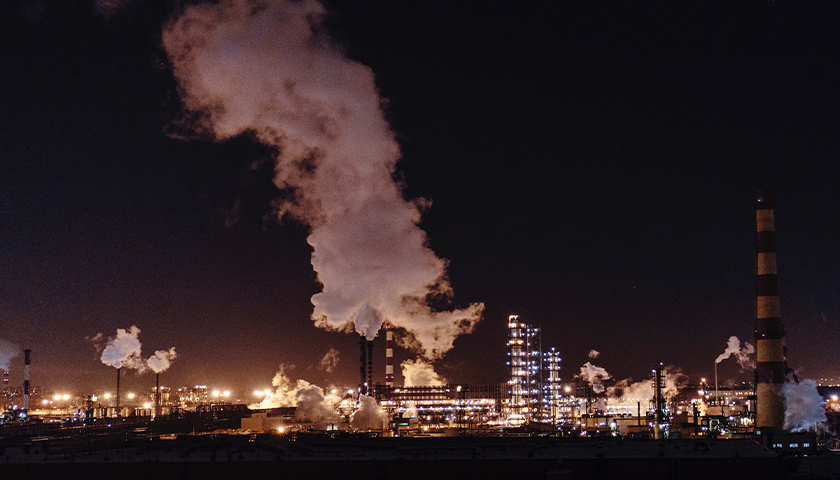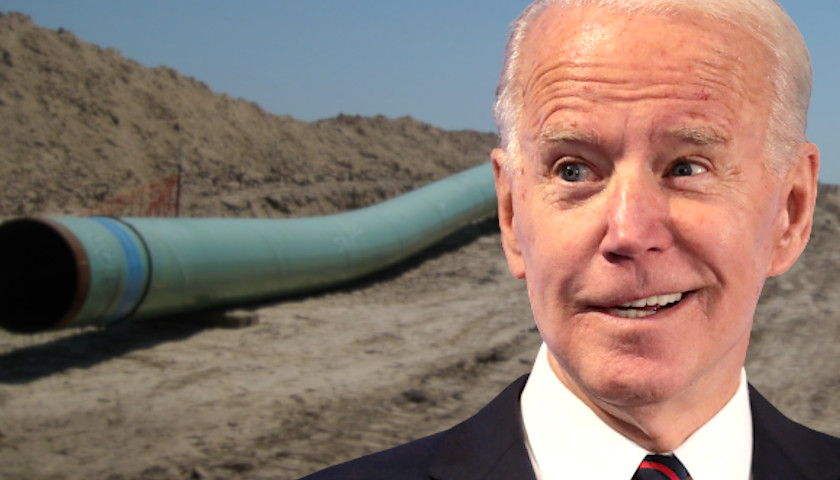by Kevin Killough In the past few years, America has seen high inflation rates and a faltering economy that some observers say will go into a recession. The latest conflict in the Middle East could likely pose a significant disruption in global energy supplies. Where the GOP contenders stand on energy policies…
Read MoreTag: energy policy
Commentary: ‘Net Zero’ Is Not a Rational U.S. Energy Policy
Despite Germany’s last-ditch attempt at realism, the European Union recently approved a 2035 ban on gas-powered cars, moving ahead with its “net zero” emissions agenda. In the U.S., the cost of achieving net-zero carbon emissions would be staggering – $50 trillion if the goal is reached by 2050 – as would the demand for raw materials, which in most cases would exceed current annual worldwide production.
Read MoreCommentary: Biden Administration’s Manipulated Energy Policy Demonstrates Ignorance of History
Consumed, as they have been, with the work of pushing revisionist woke ideology in the schools, it seems the Left missed the lesson that those who don’t know history are doomed to repeat it. They’ve learned nothing from the past, not even the recent past.
Yet here we are, looking at the possibility we could repeat the same mistakes Europe made in the late 90s and early 2000s when they failed to realize the real motivations behind the green energy propaganda they were being spoon fed as truth.
Read MoreCarrie Sheffield Commentary: Biden’s Dizzying Energy Policy Is Even Making Climate Warriors Scratch Their Heads
You’d think after achieving $5 a gallon nationwide gas prices and gutting domestic oil and gas producers, America’s environmental extremists would be elated and emboldened. But President Joe Biden’s energy policy is so incoherent, even Green New Deal socialists are frustrated, according to reporting by Politico’s Zack Colman.
“The climate advocates who cheered President Joe Biden’s arrival at the White House last year are preparing to give up on Washington,” Colman writes. “Instead, environmentalists and many of their Democratic allies are starting to shift their focus to state capitals as the places to press for action on climate change — going back to a strategy that they employed with some success during the Trump era.”
Read MoreBiden White House Report Says Energy Taxes Are ‘Needed’ for Green Transition
The White House said Americans should pay higher taxes to ensure a rapid green transition away from fossil fuels in a report on President Joe Biden’s economic record.
The federal government can encourage such a shift through carbon taxes or a cap and trade system forcing an emissions limit on companies, said the Council of Economic Advisers (CEA) report released last week. The White House added that consumers would continue purchasing “artificially inexpensive, carbon-intensive goods” without proper government policies in place.
Read MoreCommentary: Ukraine Crisis Reveals New Bipartisan Energy Opportunities
In just the last three weeks, Russia’s invasion of Ukraine has significantly altered our national energy policy landscape and dramatically shifted the political dynamics around legislative priorities and political possibilities in Congress. The roiling of global oil markets, underpinned by an already tight supply situation from the post-pandemic economic awakening, has been driven by perceived risks of supply disruption caused by the Russian invasion. Risk premiums and a formal American embargo of Russian energy have sent prices skyrocketing and revealed, once again, that we have few good short-term options when faced with energy supply challenges. While our tools are limited today, the current moment may present an important window of opportunity to develop a policy approach that reduces this vulnerability and limits our exposure next time. This renewed attention to energy security combined with a focus on fighting energy inflation has the potential to galvanize a bipartisan policy pathway that would have been unthinkable as the year began.
The broad support that materialized in Congress and the White House for a ban on Russian oil and natural gas imports earlier this month is a case in point. Remarkably, widespread congressional support for the ban occurred despite already high gasoline prices, with oil prices well over $100 a barrel and gasoline averaging more than $4.30 a gallon across the nation.
As President Biden said when announcing the ban, “Americans have rallied to support the Ukrainian people and have made it clear we will not be part of subsidizing Putin’s war… This is a step that we’re taking to inflict further pain on Putin, but there will be costs as well here in the United States.”
Read MoreCommentary: The Keystone Cancellation and Biden’s Climate Cronyism
Among many executive actions signed on Inauguration Day to sweep Trump policies out the door along with the man himself, President Biden rescinded approval for the Keystone XL oil pipeline. Keystone XL, according to Biden’s top climate policy adviser Gina McCarthy, “was not consistent with addressing the climate crisis to the depth and scope that we are planning to address it.”
Keystone XL has now played the role of political football for a full decade, and Americans can be forgiven for having forgotten the project’s details.
Read MoreCommentary: Michigan Governor’s War on Energy is Bad Policy and Bad Politics
Michigan’s Governor wants to make life more difficult for Ohioans and Toledo is directly in her crosshairs.
On November 13th Governor Gretchen Whitmer, along with her Attorney General Dana Nessel, issued a cease-and-desist order against construction of a $500 million dollar infrastructure upgrade known as the Great Lakes Tunnel. The tunnel will replace the Mackinac Straits section of the Line 5 pipeline, a 647-mile pipeline that carries 540,000 barrels a day of light crude oil, light synthetic crude, and natural gas liquids (NGLs) to the refineries of Toledo, and the Midwest. The order would not only stop this next generation infrastructure improvement, it would also force the permanent closure of the Line 5 pipeline by May of 2021, devastating the 1,200 Ohioans that work in these petrochemical facilities.
Read More







